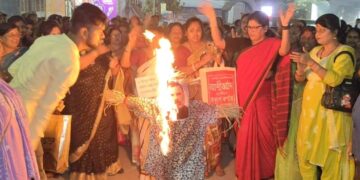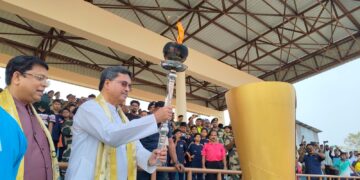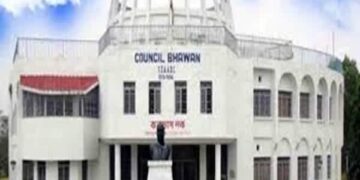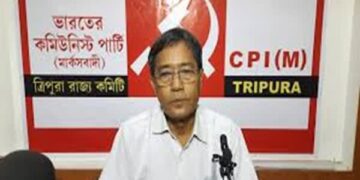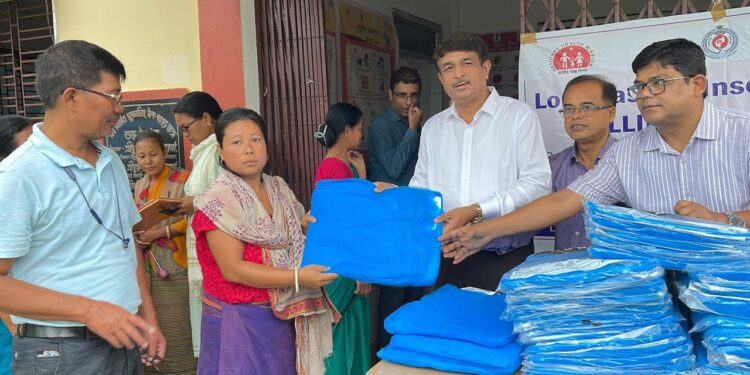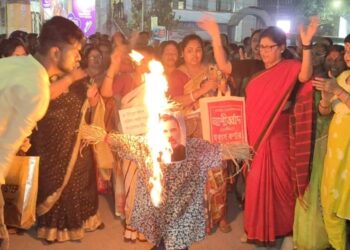Agartala, May 19:Tripura, which has historically reported several malaria deaths, has set an ambitious target to become malaria-free by 2027, according to a senior official from the state’s Health and Family Welfare Department.
During the launch of a mass malaria testing program and the distribution of free medicated mosquito nets at Bharat Chowdhury Para in Hezamara block in West Tripura district, speaking to reporters state’s Health Secretary Kiren Gitte said, “There were a large number of deaths in 2014, but since then, malaria cases have been reducing in Tripura. In recent years, malaria deaths have been in single digits. Now, we aim for no new cases by 2027. We have a three-year program and a strategy developed with the help of a team from the Government of India.”
He detailed the strategy, which includes house-to-house surveillance by ASHA workers. If a positive case is found, medicine kits are provided at health sub-centers by community health officers for a 14-day treatment course.
To prevent malaria spread, the state government is distributing 9.5 lakh mosquito nets, particularly in remote areas with significant indigenous populations.
Gitte emphasized the importance of maintaining dry zones around houses to prevent mosquito breeding and the introduction of larvivorous fish in drains which will eat the mosquito lava.
“Tripura’s efforts target a population of 3.5 lakh people living in 126 villages that are malaria endemic. The goal is to test the entire population in these areas for malaria germs. Last year, Tripura recorded 22,000 positive malaria cases, with 14,000 in Dhalai district alone. The state aims to reduce incidents through extensive testing and treatment, with directives to district magistrates and chief medical officers to ensure no malaria deaths occur,” Gitte stated.
He also noted that those involved in jhum cultivation and rubber production are particularly vulnerable to malaria. The government is focusing on creating awareness and providing preventive medicines among these high-risk groups.
The initiative has been well-received by villagers, who appreciate the free mosquito nets, testing facilities, and medication provided at their doorsteps, which would otherwise be financially inaccessible for many.
Meantime ground-level health workers, specially trained in malaria testing, medication, and awareness, are working enthusiastically towards achieving the target of a malaria-free Tripura within the next three years.
Although it is a challenging task, it will be considered a remarkable achievement in saving the lives of the underprivileged, especially those living in the remote areas of the state.

